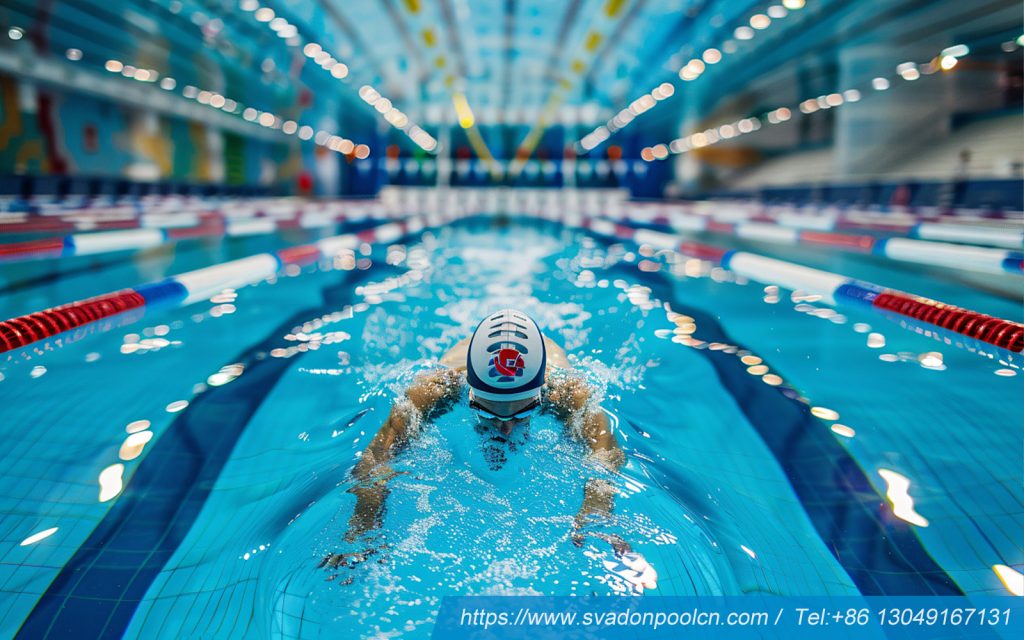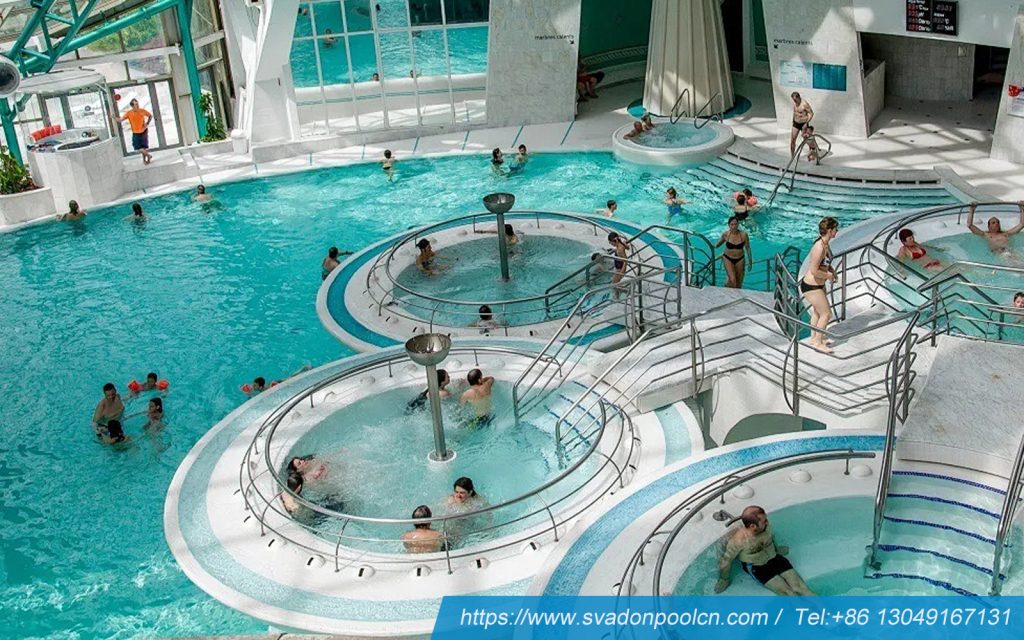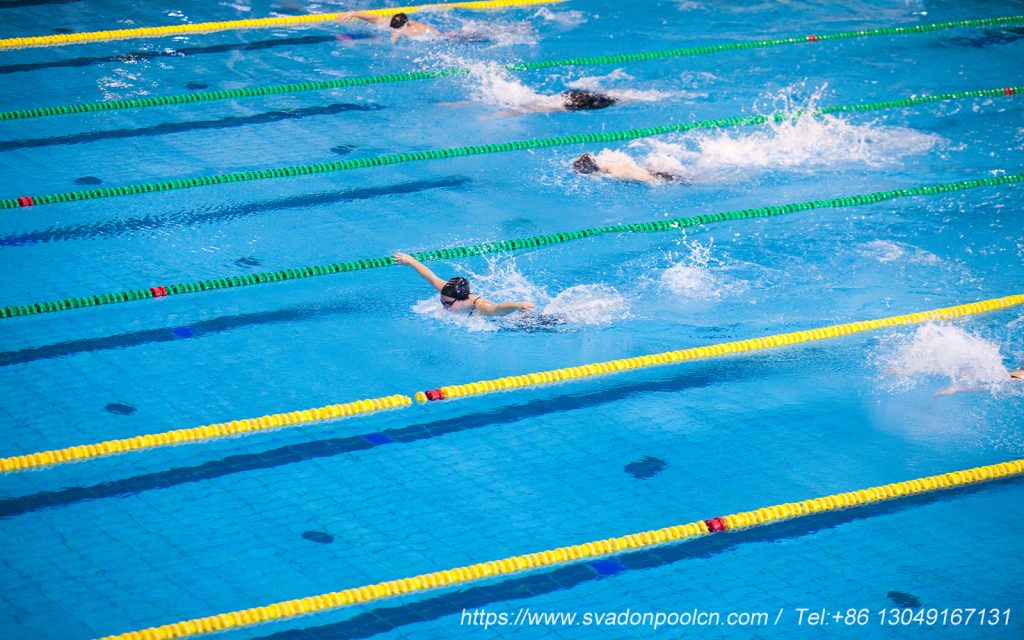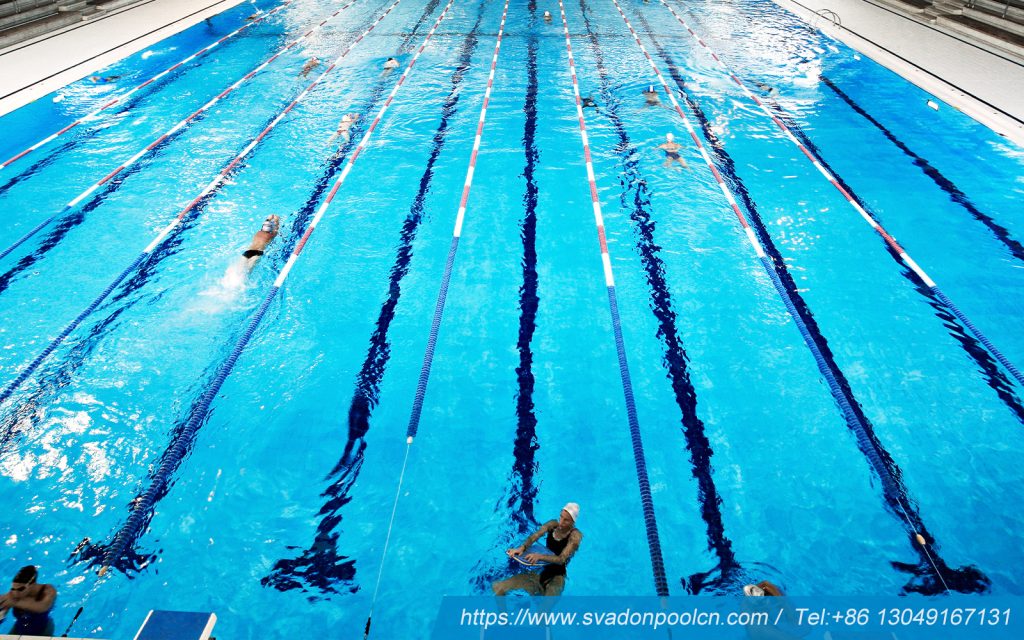I believe many people have this experience:
Even if you go to the indoor pool in summer, you will still feel cold when you enter the water, stay in it for a long time, and if you do not exercise enough, you will shiver a little.
Indoor swimming pools are different from outdoor swimming pools, indoor swimming pools are heated pools. The water temperature of the national standard swimming pool is between 22 ° C and 26 ° C, and the temperature will be lower if it is in competition.

Temperature standards for indoor pools
1. Competition pool :24°C-26°C
2. Training pool :25°C-27°C
3. Diving pool :26°C-28°C
4. Children's swimming pool :24°C-29°C
Note: For swimming pools in hotels, schools, clubs and villas, the water temperature of their pools can be designed according to the temperature of the training pool water.
As we all know, the human body temperature is 37 °C, and there is a temperature difference of about 10 °C between the human body and the indoor swimming pool, which will naturally feel cold.
So here's the question:
Since it's a heated pool, why can't the temperature be higher?

Reason 1:Prevent heat stroke in the pool
If the water temperature reaches 30°C, people can't swim at all. Tests show that at 29°C, swimmers start to lose strength after just 200 meters.
Swimming in warm water is more tiring and uses more energy. The body can’t cool down in warm water, so body temperature rises continuously. To release heat, blood vessels near the skin dilate, which can reduce blood supply to vital organs.
To cool off, the body also sweats more, expecting evaporation to help lower temperature. But in warm water, this doesn't work, leading to dehydration instead.
With rising body temperature and dehydration, there's a risk of heat stroke. (It doesn't just happen in summer. Heat stroke often happens in hot baths), this is a very fatal emergency, prone to abnormal heart function, confusion and breathing difficulties. It's dangerous enough when it happens on land, but it's even more dangerous when it happens in water.
Reason 2: Help muscles contract
Even the smallest body movements rely on muscle contraction. Muscles need to contract to show strength.
Cold water not only helps blood vessels contract but also helps muscles tighten, giving people in the water a sense of power as they move.
In warm water, however, the effect is the opposite. Warm water relaxes the muscles, massaging the body into a comfortable state. While this feels nice, it makes movement harder and more tiring. (We've all experienced how a hot bath can make you feel tired. A comfortable tiredness, of course.)

Reason 3: Cold or heat relaxation, blood vessels dilation
When exposed to water cooler than body temperature, blood vessels in the skin constrict to reduce heat loss. However, during exercise, the heat generated causes these vessels to dilate, allowing the cardiovascular system, which usually gets less of a workout, to become engaged—an excellent exercise for preventing cardiovascular diseases.
Additionally, when the body feels cold, blood vessels in the skin constrict, and blood flows back to vital organs, such as the brain, to protect them from harm. In a warm environment, however, blood vessels in the skin dilate, with more blood remaining near the surface, reducing flow to these vital organs. Without sufficient nutrients and oxygen, the brain difficult to function effectively, often resulting in slow reactions and mental fog.
Reason 4: Cold water is an "effective radiator"
Swimming consumes more energy than many land-based sports, which is one reason people love it, and it also sets the standard for pool water temperatur
We've all had this experience: whether swimming or playing in water, it feels cold at first, but after getting active, you might even feel hot enough to sweat. This happens because exercise not only consumes energy but also generates heat, and metabolism speeds up, raising body temperature. Cool water is needed to help lower this temperature, making you feel comfortable. If the water temperature isn't below body temperature, then water, the ideal “effective radiator” can't perform its function.

Now everyone knows! The next time you go to the indoor swimming pool, don't complain that the pool water is too cold, the water temperature is not to see the mood, but for everyone to have a better swimming experience set ~
Foshan Guanya Swimming Pool Equipment Co., Ltd.
TEL/WhatsApp: +8613049167131

